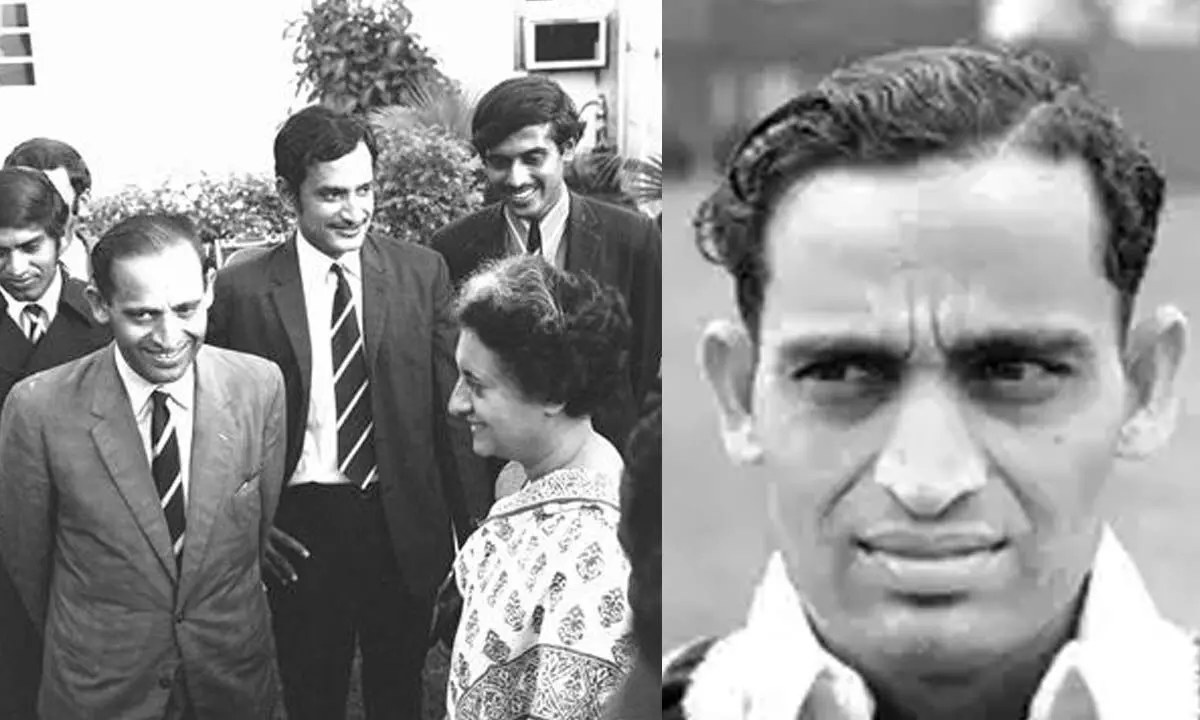The brain behind India's first Test series win in 1971

The brain behind India's first Test series win in 1971
Col. Hemchandra 'Hemu' Ramachandra Adhikari (Cap no:36)was the cricketer to have been accorded the privilege of being independent India's first Test player.
Col. Hemchandra 'Hemu' Ramachandra Adhikari (Cap no:36)was the cricketer to have been accorded the privilege of being independent India's first Test player. By then, India had played 10 test matches from 1932-1947, all of them as a sort of bilateral series with England, both at home and abroad in which it lost six matches and drew four. Eight of these matches were played in England while only two, during the 1933-34 series were played in India at Madras and Calcutta, as they were known then.
Inducted into the game at the Brisbane cricket ground, in the 1947-48 five-match test series against Australia, Adhikari established his credentials very soon. He was the go-to player during crises and his partnerships with Vijay Hazare during the Adelaide Test in which he enabled the former to add a valuable 132 for the seventh wicket gave a peek into what was to follow in the later years. In a test match career of 21 matches played in 12 years in which he had to counterbalance his career with the Army ( the country played 47 matches during that phase), he scored 872 runs @ 31.14 average, in which there was a century and four 50-run scores to his credit. He played in the inaugural matches against Australia, West Indies and Pakistan.
A break-up of his performances reveals that he played seven matches against Australia scoring 216 runs at an average of 18. Six matches came his way against England in which he scored 187 in 10 innings with a slightly better average of 20.77, as compared to his Australian match performances.
Against arch rivals Pakistan, in the 1952 series, he played two matches, in which he had a not out score of 81 out of a total of 112. That was scored at Delhi when India played the first of the two match series and won it by an innings and 70 runs.Adhikari along with Ghulam Ahmed, who scored 50 runs, enjoyed a 109- run partnership which took the home team score to 372, a mountain which Pakistan couldn't climb. His only century was when he played the West Indies (114 not out, with an average of 51, his best).
After his retirement from the game in 1959, when he was not picked for the England tour, Adhikari would have been relegated to the fringes had he not taken to coaching the cricket team, which had its impact over the years. Former national team spin bowler BapuNadkarni talking about his methods is quoted as saying "Adhikari was a disciplined man. Being a military man, he would not bother about what anybody else thought."
As eminent sports journalist Suresh Menon wrote in ESPN Cricinfo website: 'It was in his second career - as the national coach - that Adhikari rose to his full potential. He was the team manager and the brain behind India's first series win in England in 1971. He shaped the career of cricketers in a two-decade period that saw the rise of, among others, Sunil Gavaskar, MohinderAmarnath, DilipVengsarkar, Krishnama chari Srikkanth, Ravi Shastri, Kapil Dev and Syed Kirmani. A brilliant cover point in his time, Adhikari was a hard taskmaster who placed physical fitness above all - a concept that was new to Indian cricket which traditionally had been served by talented players who could bat or bowl like a dream, but often escorted the ball to the boundary while fielding. Adhikari was not a big man yet he was a presence. He will be remembered for his role in Indian cricket's self-confidence movement that began with that series win in 1971.'
HemuAdhikari died on October 25,2003 at the age of 84. Former Indian Test opener Chetan Chauhan paying him a tribute said: 'I had the honour of playing for India when Adhikari was manager. Even after his retirement from cricket, he contributed substantially to the game. I'm very sad that he has passed away, and I think the game should be indebted to him.'
(Next: Nirode Chowdhury – India's 50th Test player)














